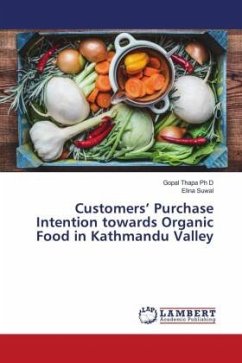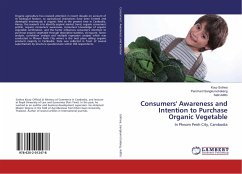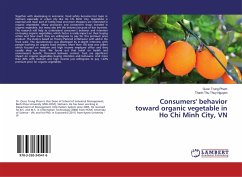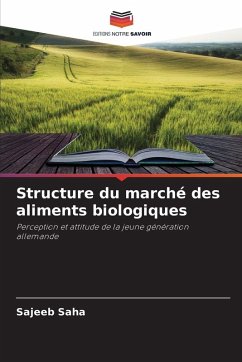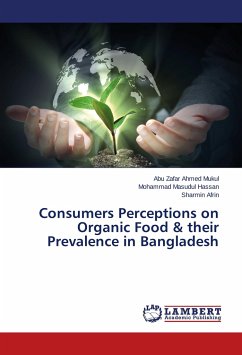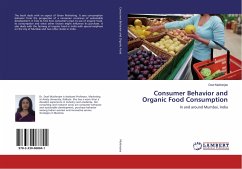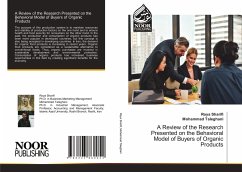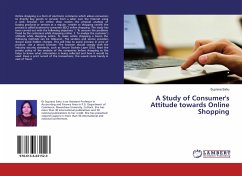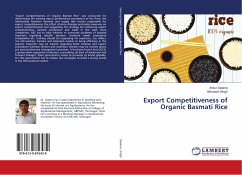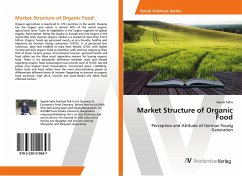
Market Structure of Organic Food
Perception and Attitude of German Young Generation
Versandkostenfrei!
Versandfertig in 6-10 Tagen
33,99 €
inkl. MwSt.

PAYBACK Punkte
17 °P sammeln!
Organic agriculture is practiced in 170 countries in the world. Oceania has the largest area which is almost 40% of the world organic agricultural land. Fruits & vegetables is the largest segment of global organic food market. Being the largest in Europe and 2nd largest in the world after USA, German organic market is a market of more than $10.5 billion. Organic foods are perceived mostly as eco-friendly, healthy and expensive by German Young consumers (GYOC). It is perceived less nutritious, tasty and credible to male than female. GYOC with higher income perceive organic food as healthier, sa...
Organic agriculture is practiced in 170 countries in the world. Oceania has the largest area which is almost 40% of the world organic agricultural land. Fruits & vegetables is the largest segment of global organic food market. Being the largest in Europe and 2nd largest in the world after USA, German organic market is a market of more than $10.5 billion. Organic foods are perceived mostly as eco-friendly, healthy and expensive by German Young consumers (GYOC). It is perceived less nutritious, tasty and credible to male than female. GYOC with higher income perceive organic food as healthier, safer and less expensive than that of lower income group. Environment concern, personal health and food safety are the three most imperative reasons for buying organic food. There is no attitudinal difference between male and female regarding organic food consumption but income level of GYOC has the power over organic food consumption. Convenient place, credibility, better taste and food safety have the most discriminating power to differentiate different levels of income. Regarding to barriers to organic food purchase; high price, income and taste remain the three most effectual factors.



